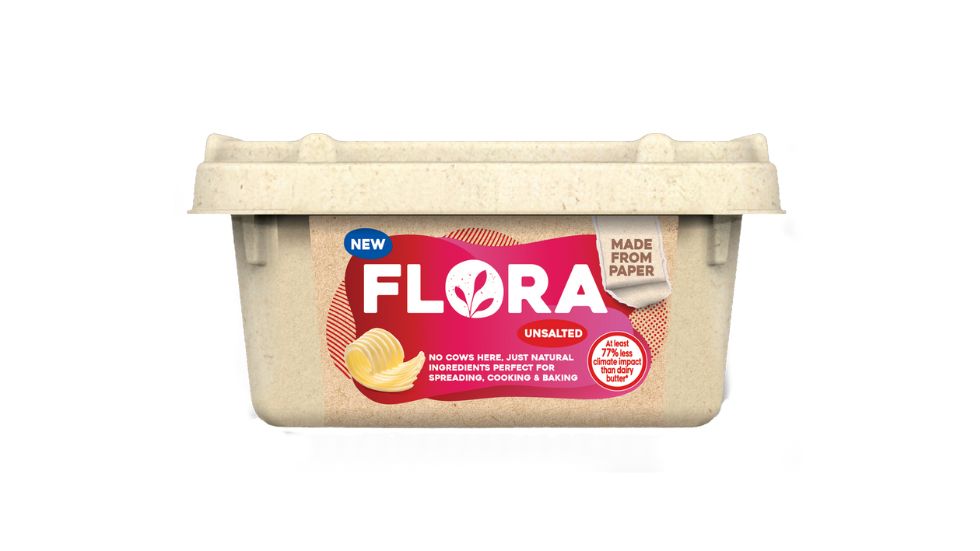Upfield, a global brand leader in plant-based foods, has launched the world’s first plastic-free, recyclable tubs for its plant butters and spreads. This packaging innovation is a result of four years of collaboration with Footprint and is a crucial step in Upfield’s commitment to reducing plastic content by 80% across its portfolio by 2030.
Upfield’s new packaging puts an oil-proof, plastic-free, recyclable paper solution on supermarket shelves following a roll-out in Austria with Flora Plant-based spread in 2023, with additional European markets and brands to follow this year.
The new paper-based tubs are made from compressed wet paper fibres and are waterproof, oil-proof and recyclable in local home paper recycling schemes. Unlike other paper packaging solutions, Upfield’s paper tubs do not have a plastic liner so they can be recycled along with other paper and cardboard household waste.
As people increasingly look for eco-friendly choices, this brand innovation not only aligns with Upfield’s commitment to environmental responsibility but also leads the way in the category.
Karina Cerdeira, Head of Packaging for Upfield, said, “This new paper tub marks a true milestone for sustainable packaging that significantly minimises reliance on plastic. We will continue pushing boundaries through further innovation to adapt for compostability, develop new sizes and formats, and refine towards the optimal solution. We hope what we’ve achieved inspires other businesses to keep pursuing positive change.”
This is essentially a textbook example of what brands do. It exemplifies the ‘FMCG’ branded business model and highlights why we need it. This packaging innovation is part of an innovation continuum. Upfield innovated to help drive plant-based spreads into the mainstream when they stretched the Flora brand into a space it could legitimately go. No time to stand still – an effective brand is as close to a perpetual motion machine, or should be, as our world produces. They know that there will be competitors trying to steal share and own label products plagiarising their identity and investment to take a ‘knife-ful’ of a newish category. Like all brand teams, Upfield will be engaged in the relentless job of innovating to increase their relevance and distinctiveness/difference. This is a game of marginal gains, small steps and occasionally breakthrough leaps (the macro category move to plant based was one of these). This idea is an output of this ‘day job’ process. It ticks so many boxes that it deserves praise. It is relevant in supporting broader sustainability goals which will no doubt produce a category follower effect. It is brand relevant, with their consumers welcoming greener packaging. It is interesting enough to be worth communicating, with the message driving distinctiveness and improving stand-out at fixture, probably growing sales.
If brands did not exist, we are sure that paper-based packaging for spreads would have emerged… eventually. What would be a retailer’s motivation to invest, or be first? With the primary focus being on price, such innovation would limit their ability to match other retailers on price.
Conclusion: brand innovation rapidly accelerates the process of positive change, delivering more benefits and relevance to more people, faster. This then forces retailers and the category to catch up. This is not altruistic; it is how the model fuels growth. Thank you Upfield for delivering this simple example of what brands do.

